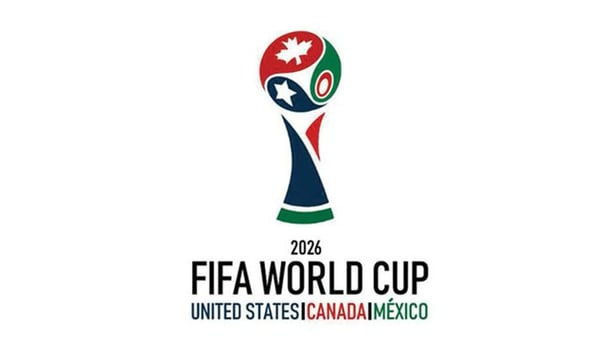World Cup in the USA 2026: A New Era for Football in America
SPORT


The 2026 FIFA World Cup will mark a historic moment in the world of football (soccer), as the tournament will be jointly hosted by three nations: the United States, Canada, and Mexico. For the first time in history, the World Cup will expand to include 48 teams, offering more opportunities for nations to compete on the world’s biggest stage. As the spotlight turns to North America, the 2026 World Cup promises to be a game-changer for the sport in the United States, both in terms of infrastructure and the development of football culture.
A Groundbreaking Event for the U.S.
While the United States has long been a major player in the global sports scene, football has traditionally played second fiddle to other sports like American football, basketball, and baseball. However, the country’s successful bid to host the 2026 World Cup signifies the growing importance of soccer in the U.S. and represents an unprecedented opportunity for the sport to gain widespread popularity.
Hosting the World Cup is expected to boost the profile of soccer across all levels, from youth participation to professional leagues. With 11 host cities across the U.S. selected to stage matches, including iconic locations like New York, Los Angeles, and Miami, this World Cup is poised to leave a lasting legacy on the American sports landscape.
Expansion to 48 Teams: A New Chapter
The 2026 World Cup will be the first tournament to feature an expanded format, increasing the number of teams from 32 to 48. This expansion will not only make the tournament more inclusive but will also bring more excitement to the competition. For fans in the U.S., this means more opportunities to watch global football stars and exciting matchups. With more teams involved, the group stage will be longer, offering fans a deeper connection with teams from around the world.
The expanded tournament format also allows for more emerging nations to participate, potentially unearthing new footballing powerhouses and exciting narratives. Teams from across Africa, Asia, and the Americas that have historically struggled to qualify for the World Cup will have an increased chance to shine.
The U.S. Men’s National Team: An Opportunity to Compete on Home Soil
For the U.S. Men’s National Team (USMNT), the 2026 World Cup offers an invaluable opportunity to compete on home soil, with all the advantages that come with being the host nation. The USMNT has made strides in recent years, boasting an exciting mix of young talent and experienced players, and hosting the World Cup may serve as the perfect stage for them to make a deep run in the tournament.
The tournament will allow the U.S. to build on its previous World Cup performances and perhaps elevate the team to new heights. The 2026 World Cup could be the turning point that pushes American soccer to the level of other international football giants, fostering a new era of competitiveness on the global stage.
Boosting Soccer Infrastructure in the U.S.
Hosting the World Cup will also have a massive impact on soccer infrastructure in the U.S. Over the next several years, major investments will be made in stadiums, training facilities, and fan engagement experiences. The 2026 World Cup will highlight the need for top-tier venues, and cities across the country are already beginning to make preparations for the influx of international visitors and the high expectations that come with hosting the world’s most-watched sporting event.
Stadiums such as the iconic MetLife Stadium in New Jersey, the Rose Bowl in California, and FedEx Field in Maryland will be showcased to a global audience. These state-of-the-art venues will provide fans with an unforgettable experience, whether they’re cheering on their team in the stands or enjoying the action from home.
Cultural Impact: Growing the Love for Soccer
For many years, soccer has been a growing sport in the U.S., but it hasn’t yet fully captured the nation’s sporting imagination like American football or basketball. However, the 2026 World Cup presents a unique opportunity to change that narrative.
The tournament will serve as a catalyst for the further development of soccer at all levels. From the grassroots programs that introduce children to the sport to the Major League Soccer (MLS) clubs that continue to gain in popularity, the World Cup will inspire future generations of players, coaches, and fans. The event will also provide an opportunity for U.S. soccer culture to become more inclusive, connecting fans from different ethnic backgrounds who may already be passionate about the sport from their home countries.
Global Attention: The World Comes to America
With the world’s eyes fixed on North America in 2026, the U.S. will become a hub for football culture. Fans from all corners of the globe will travel to the U.S. to support their teams, adding an exciting international element to the tournament. This global attention will provide an unprecedented platform for American soccer to shine on the world stage and help the sport gain more legitimacy in the eyes of the American public.
In addition, the U.S. will have the opportunity to showcase its growing role in global football by hosting cultural events, fan festivals, and digital content that celebrate the sport and its diverse international following.
Conclusion: A Historic Opportunity
The 2026 World Cup represents much more than just a tournament—it is a pivotal moment in the history of soccer in the United States. As the country prepares to host the world’s largest sporting event, it has the chance to not only provide an unforgettable experience for fans from around the world but also set the stage for the continued growth of soccer in the U.S.
With exciting new teams, cutting-edge infrastructure, and a passionate, growing fan base, the 2026 World Cup promises to be a transformative event that will shape the future of soccer in the U.S. and beyond. As the countdown continues, all eyes will be on North America for a World Cup that will undoubtedly leave a lasting legacy on the global football landscape.
